Soviet Union (USSR)
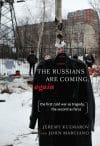
Karl Marx famously wrote in The Eighteenth Brumaire of Louis Napoleon that history repeats itself, “first as tragedy, then as farce.” The Cold War, waged between the United States and Soviet Union from 1945 until the latter's dissolution in 1991, was a great tragedy, resulting in millions of civilian deaths in proxy wars, and a destructive arms race that diverted money from social spending and nearly led to nuclear annihilation. The New Cold War between the United States and Russia is playing out as farce—a dangerous one at that. The Russians Are Coming, Again is a red flag to restore our historical consciousness about U.S.-Russian relations, and how denying this consciousness is leading to a repetition of past follies. | more…
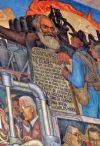
The Marxian critique of political economy is inseparable from the “labor theory of value.” But what exactly does this theory mean? This article considers Marx’s value theory from five perspectives: as a monetary value theory, a theory of exploitation, a macro-monetary theory of capitalist production, a theory of individual prices, and a theory of crises. | more…

The Radical Historians of U.S. Empire
In the early years of the Cold War, the academic study of international relations was an ideological tool serving the foreign policy of the United States and its allies. But in the 1960s, a new generation of scholars began to challenge the reigning orthodoxy. | more…

For this special issue, MR has invited some of the most profound left thinkers in the world to reflect on the legacy of revolutions and counterrevolutions around the world since 1917. Naturally, these authors do not all offer similar perspectives or come to the same conclusions. Nor should they—the historical issues are too complex and the human stakes are too high. | more…

If counterrevolution ultimately triumphed over the revolutionary waves of the twentieth century, how are we to understand this, and what does it mean for the future of world revolution? The answer requires a survey of the whole history of imperialist geopolitics over the last century. | more…
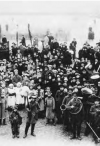
The October Revolution was the first such event in human history that was theoretically conceived and executed according to a plan. It is this theoretical comprehension of the underlying historical conjuncture that explains the revolution’s sweep and energy, the profound changes it wrought in the world, and the extent to which it threatened the very existence of capitalism. | more…
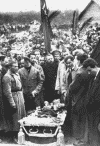
The fundamental humanist values of the Russian Revolution still capture the imagination. As an experience of history and a methodology for transforming the world into a community, the revolution’s legacy has persisted far beyond the failed experiment of state socialism itself. | more…
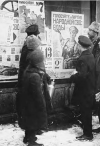
Post-revolutionary societies, in their efforts to combat counterrevolution, have always been confronted with their own contradictions, and with the persistent threat that an exploiting class could reemerge. Instead of the intended socialization and democratization, in many places what resulted was instead state ownership and stultifying bureaucratization of both the economy and the polity. | more…
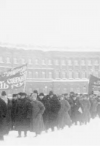
Left Intellectuals in Yugoslavia, 1988–90
Throughout Eastern Europe, there was an unleashing of pent-up questions, hopes, and fears brewing for decades. There was a sense that the ground was trembling underneath these experiments in socialism. It was clear to most of us that socialism could only survive through radical democratization. | more…
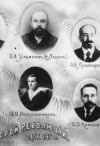
For a century, the counterrevolutionary reaction to the events of October 1917 has arguably been the most determining ideological factor in Western politics. Today the victory of that counterrevolution is complete, but Western powers still need their inherited antithesis, in changing form, as self-justification. | more…

Russell was both a liberal and a socialist, a combination perfectly comprehensible in his time, but almost unthinkable today. As a liberal, he opposed concentrations of power in all its military, governmental, and religious manifestations. But as a socialist, he equally opposed the concentrations of power stemming from the private ownership of the means of production, which therefore had to be put under social control. | more…
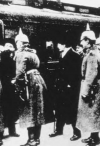
The New York Times, 1917–2017
Mainstream media outlets have recently expressed their dismay over the rise and spread of “fake news,” taking it as an obvious truth that what they themselves provide is straightforward, unbiased, fact-based reporting. They do offer such news, but they also provide a steady flow of false or misleading information, often supplied by the national security state, other branches of government, and sites of corporate power. | more…











